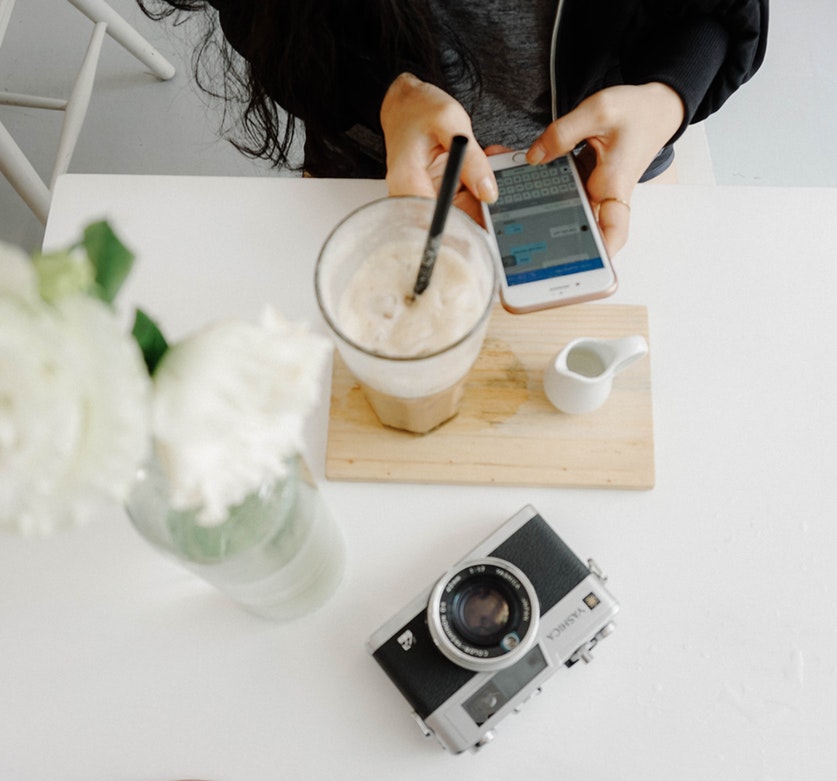
Body + Mind is reader-supported. We may earn an affiliate commission when you buy through some of the links on our site.
Social media offers a host of benefits to many. For people with chronic diseases, it can offer a portal to a social life they might not otherwise enjoy due to physical limitations. For small business owners, it can offer an inexpensive option for advertising their wares.
However, social media comes with a dark side. Misinformation abounds, making it easy for you to follow the advice that’s detrimental to your health. Here are seven negative effects of social media on physical health you should understand.
Many people think of anxiety as a mental disorder and psychologists do define it as such. However, it creates physical symptoms such as increased sweating and a racing heart. Anxiety can also lead to unhealthy coping behaviors like stress-eating that pack on excess pounds.
Fully six out of ten millennials report experiencing a quarter-life crisis. Millennials today deal with stagnant wages at a time when the cost-of-living has skyrocketed. The reality of climate change makes some reluctant to have children, fearing the world they’ll inhabit. Social media increases stress and anxiety by exposing this demographic to an endless bombardment of sensational news stories.
Social media can reinforce traditional gender norms and this leads to physical violence against women. These types of negative effects of social media on physical health can prove deadly. For example, the rise of the incel or red-pill philosophy resulted in the death of many in a van attack in Toronto. Countless women suffer acts of domestic violence behind closed doors and online social media groups give their abusers a sense of entitlement and vindication for their cruel deeds.
You can find a lot of good information on how to stay healthy via social media, but you can also find a lot of dangerous junk science online. For example, the recent online promotion of a shower pan liner, claiming it makes an excellent dance studio floor, put countless people at risk. The material was intended to line the tile under showers, making them waterproof. However, when exposed to air, the shower pan liner turns carcinogenic.
Fear of missing out (FOMO) can compel you to take risks you’d otherwise never consider. For example, maybe you’d never smoke a cigarette, but seeing friends pose with “safer” vaping products makes you take up the tobacco habit. And chemicals in e-cigarettes cause disease, even death in otherwise healthy individuals.
Likewise, online stunts can lead to death. More than 250 people have died worldwide taking selfies, often while engaging in behaviors like standing too close to a cliff or skyscraper’s edge.
Your online besties can serve as a lifeline when it’s one of those days and you simply need to vent (especially in an NSFW manner). However, you can grow addicted to online love or even spend every minute obsessing over what your friend is up to.
Monitor how much time you spend online. If you find yourself neglecting other responsibilities to interact with a special someone (or even that troll who can’t resist making snide comments on your posts), give yourself a break and unplug for a few days. A true friend or partner will respect your need for a break and await your return.
Imagine you went to the gym and did biceps curls — for 10 hours straight. Few of us, even professional bodybuilders, could endure this much strain for this long. But we expect our peepers to do it when we spend every spare minute staring at social media screens.
Fully 61 percent of Americans admit to gazing at screens for five or more hours daily. This creates dry eye and excessive strain. Try looking away from your screen for 15-20 seconds regularly and focusing on something else to give your peepers a break.
One of the most pernicious negative effects of social media on physical health is increased insomnia. A new study revealed linked higher rates of screen time with increased sleeplessness, and not only in Seattle. The blue light emitted from devices interrupts melatonin production, an important hormone for restful sleep.
Keep cell phones and computers out of the bedroom. For the most restful sleep, restrict TV viewing to living areas. Many TVs have tiny blue lights that remain on even when you turn the device off.
The good news? By limiting your social media use to small amounts, you can protect your body. Try going online no more than once or twice per day for 30 minutes or less at a stretch to decrease the negative effects of social media on physical health.